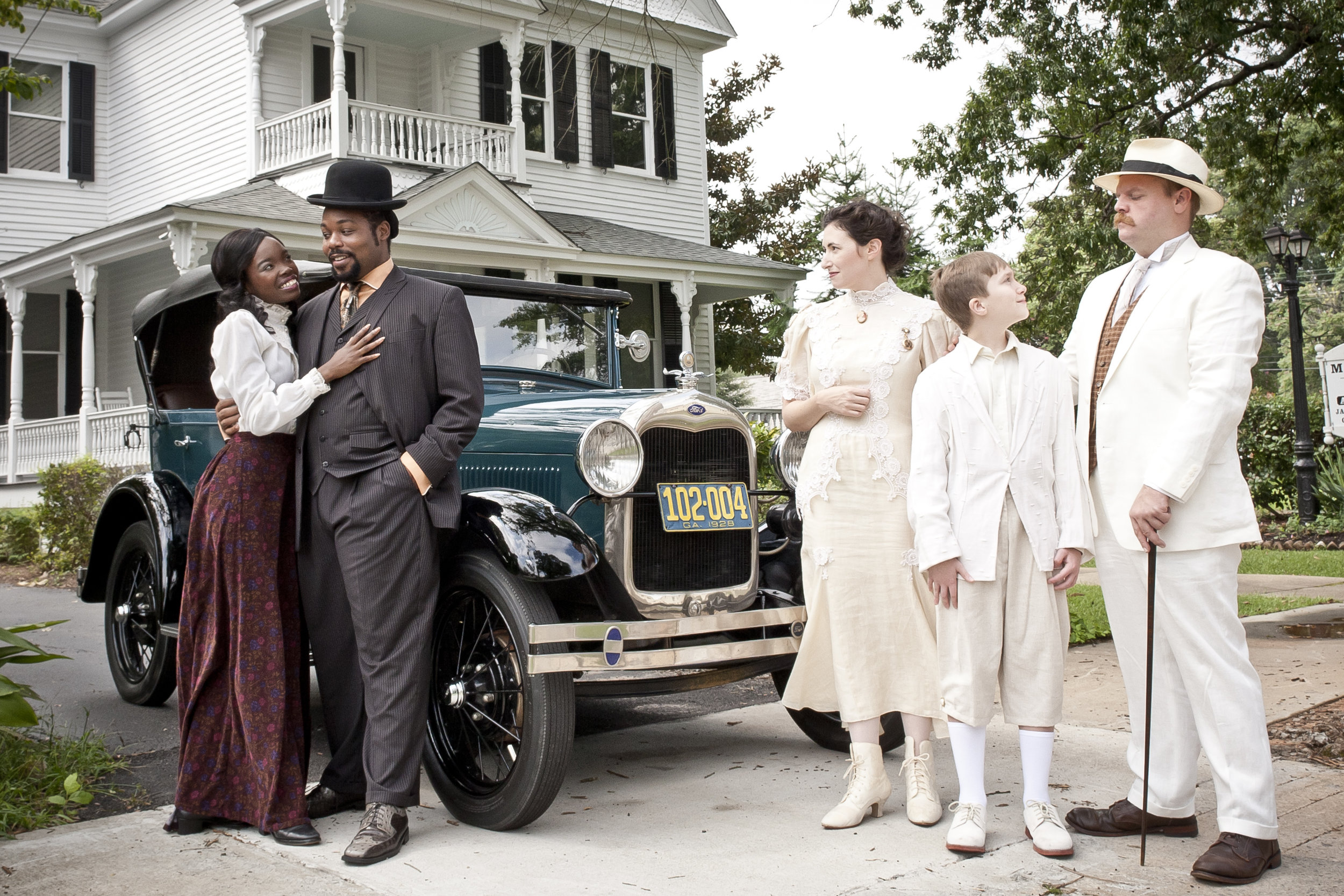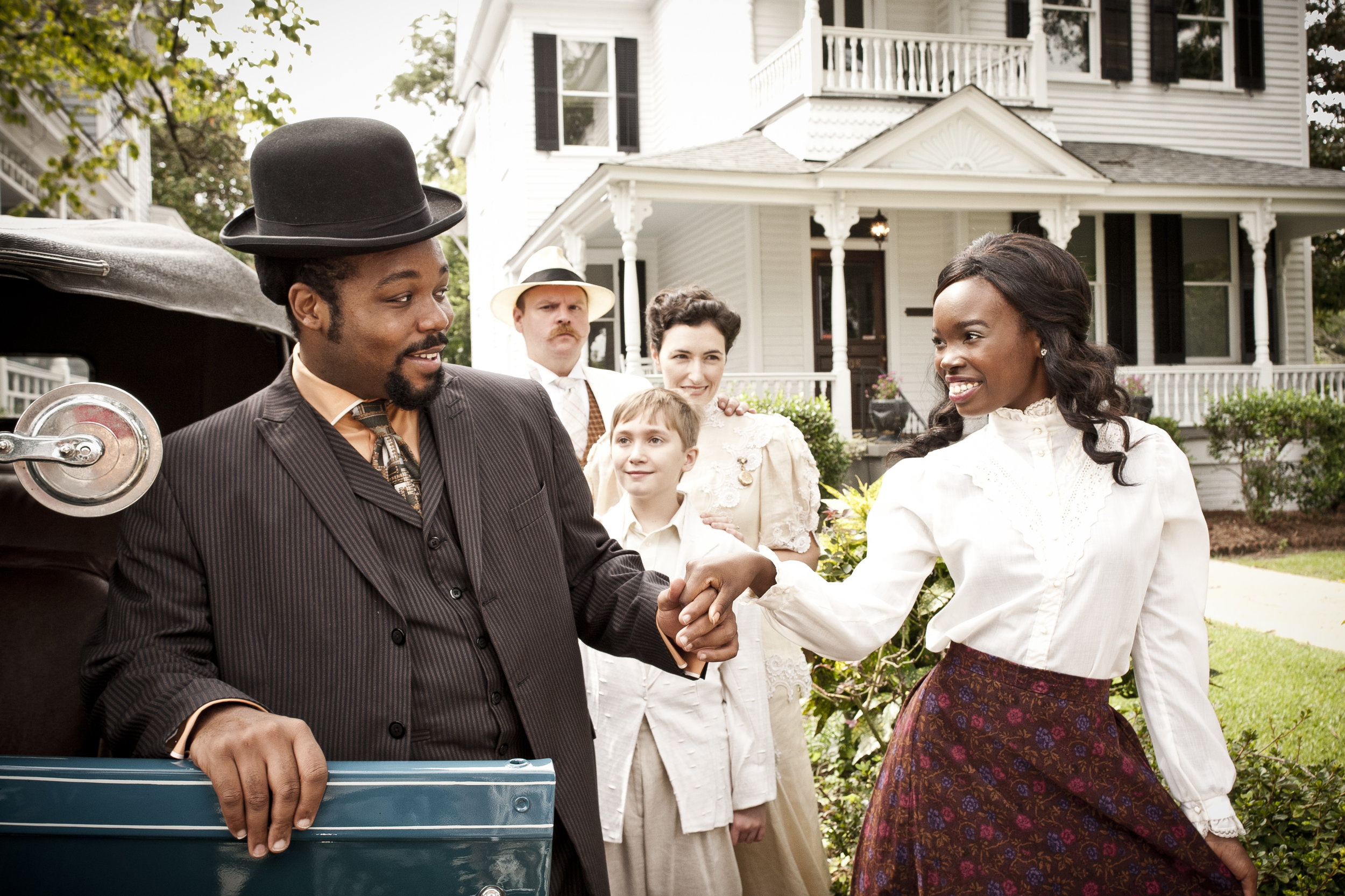“… the key to the success of this Trustus show lies squarely at the feet of the women involved in its production.”
Katrina Garvin as Billie Holiday - photo by Jerimiah Greene
Had you asked me last week if I knew who Billie Holiday was, I would have answered, Of course! Who doesn’t know about Billie Holiday?
But I would have been wrong.
I learned how much I didn’t know about Billie Holiday last Saturday night when I attended the second performance of Lady Day at Emerson’s Bar and Grill at Trustus Theatre, the company’s first presentation since quarantine.
Set in 1959 at the seedy South Philly Emerson’s Bar and Grill on a fictional night just before her death from Cirrhosis later that year, Lady Day at Emerson’s Bar and Grill, written by Lanie Robertson, takes the audience back in time and gives Holiday the microphone to do more than sing. Played by seasoned musical theatre artist Katrina Garvin, Billie Holiday tells her life story in provocative anecdotes in between performing more than a dozen of the title character’s classic tunes.
In an almost disturbingly casual manner we learn throughout the evening how the abuses of her childhood, including a rape at age 10, transformed Eleanora Fagan, which was Holiday’s birth name, into the stage’s Billie Holiday who adopted the name of her father, Clarence Halliday, a jazz musician who had abandoned her and her mother when Eleanora was born. We also learn about Holiday’s struggles with addiction and crippling insecurity both likely resulting from the institutional racism that plagued her professional life from the time she began singing in nightclubs in Harlem as a teenager, to her stint in prison by way of Carnegie Hall, until her untimely death at age 44.
Lady Day premiered in Atlanta in 1986 before moving to Off-Broadway and finally to Broadway in 2014 where it featured the incredible Audra McDonald in the title role. It is remarkable how well the play has held up and how fitting it is that Trustus Theatre decided to present it at this time of a renewed dedication to social justice in the country. The fact that it is essentially a one-woman show, with a musical accompanist, makes it a good choice in our quasi post-Covid times, too.
Lady Day opened to a sold-out Columbia audience and the house was almost full on Saturday, followed by another sold-out show on Sunday afternoon. I don’t expect many empty seats in the run of this show, and the key to the success of this Trustus show lies squarely at the feet of the women involved in its production.
Katrina Garvin, who most may remember from previous Trustus performances like Dreamgirls, In the Red Brown Water, and Constance performing under the name Katrina Blanding, was perfectly cast in the starring role as Billie Holiday. To say that Garvin embodies Holiday is an understatement. Keep in mind that Garvin already brings to the stage exceptional vocal skills but fortified with the wisdom imbued via direction from Jocelyn Sanders and backed up with dialect coaching by Marybeth Gorman and vocal coaching from Katie Leitner, Garvin subsequently delivers a performance that literally takes the audience’s breath away. And this is no small challenge given Holiday’s distinctive vocal stylings.
Garvin conveys all the same pain, frustration, and despondency that Holiday brought to the stage as well as the remarkable talent behind her interpretations of such difficult numbers as What a Little Moonlight Can Do and even Strange Fruit, one of the most painfully powerful songs ever written or performed.
Garvin’s stage partner, Shannon Pinkney in the role of Holiday’s piano accompanist, Jimmy Powers, more than holds up his corner of the stage with exceptional musical chops whether he accompanies Garvin or takes over the theatre for an extended solo while Garvin exits for a brief period near the end of the performance.
Terrance Henderson, Garvin’s musical partner in IndigoSOUL (along with Kendrick Marion), served as movement coach to Garvin, and Colleen Kelly served as stage manager for Sanders. Bad Boy Roy Brasley, Jr. styled Garvin’s hair into an elegant updo with a shock of white gardenias wrapped around the back; Abigail McNeely was costume designer; and Curtis Smoak handled lighting and the simple but convincing set for the show, easily creating the feeling that we were all sipping our drinks as we watched Lady Day at the end of her career and, sadder still, the premature end of her days.
Kudos to Trustus Theatre for bringing us back in our roles as audience members with the perfectly timed presentation of a play that reminds us of the power of art to confront the inadequacies of an imperfect culture.
Lady Day will run through June 20th on Thursdays through Sundays. For tickets and more information, visit Trustus.org.
And be sure to visit the lobby for an outstanding exhibit of art by Lori Isom. (See Below)
Art by Lori Isom.







